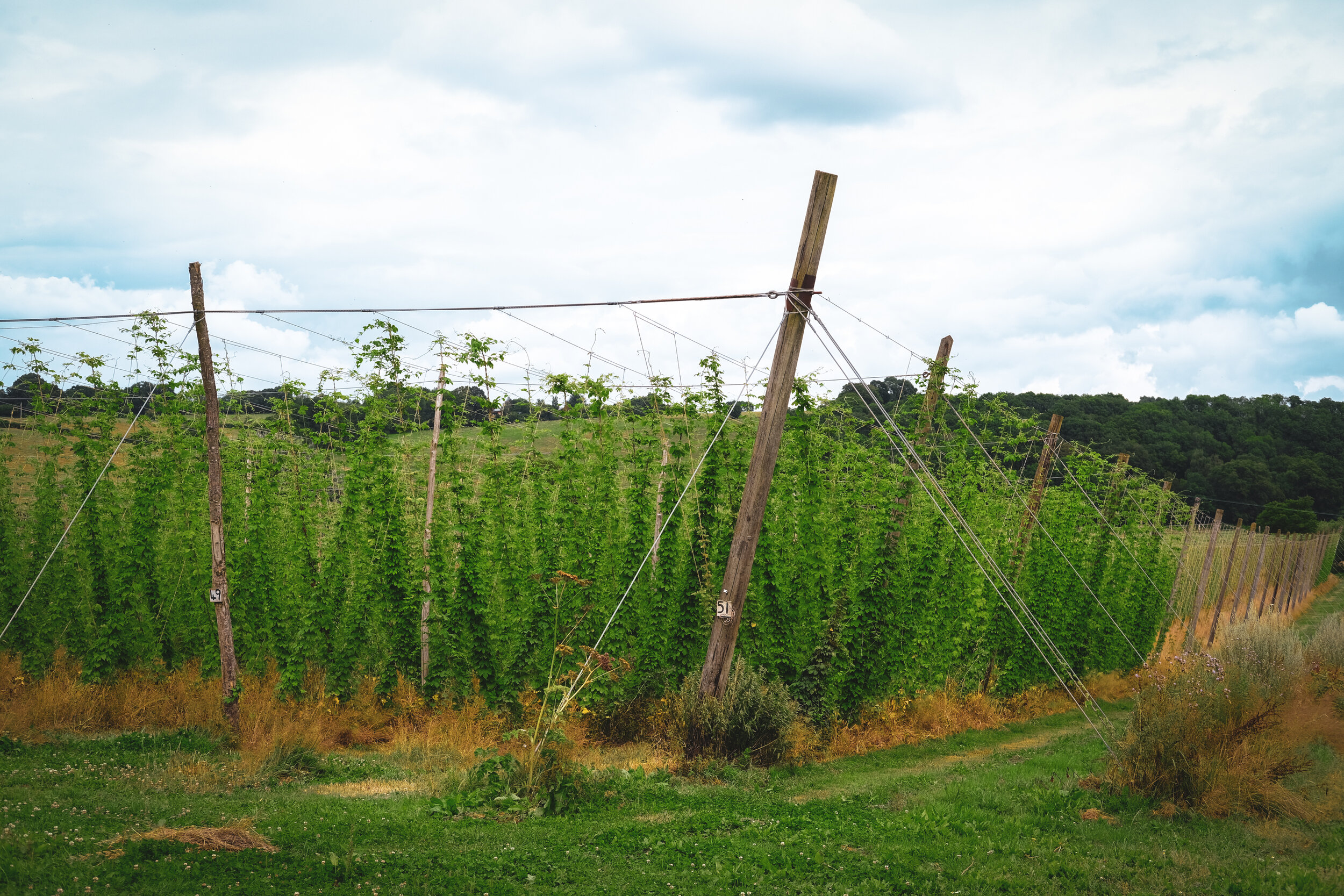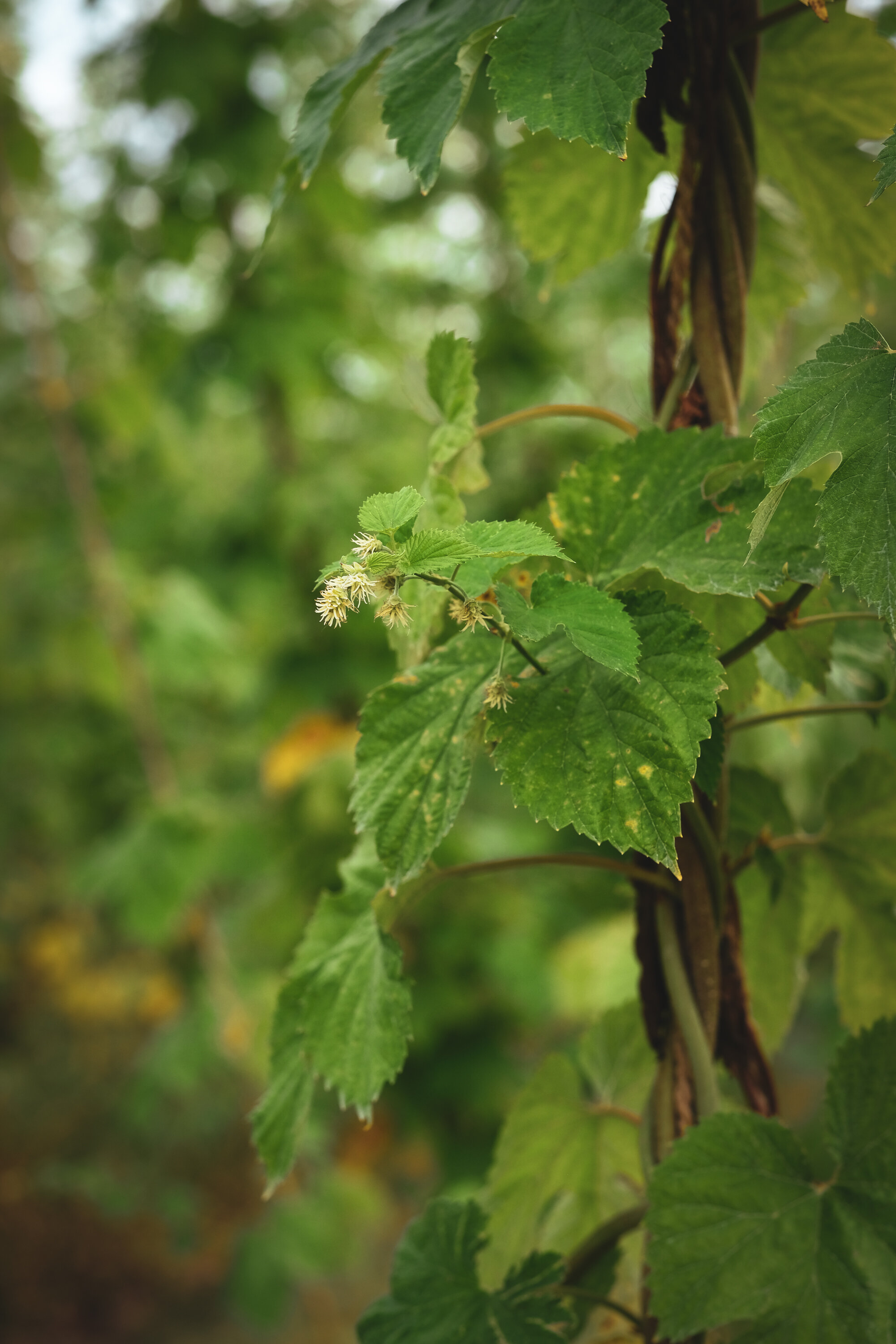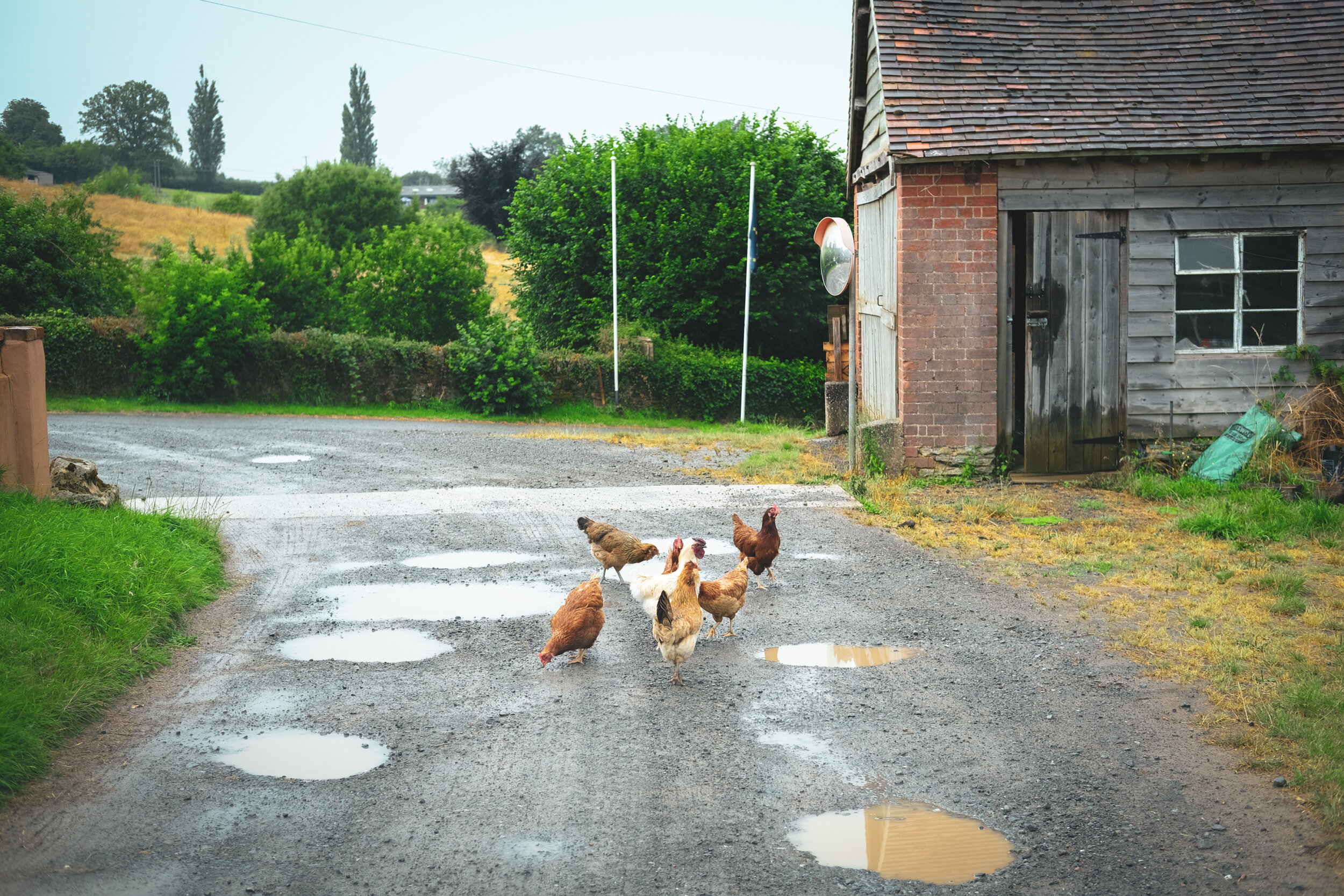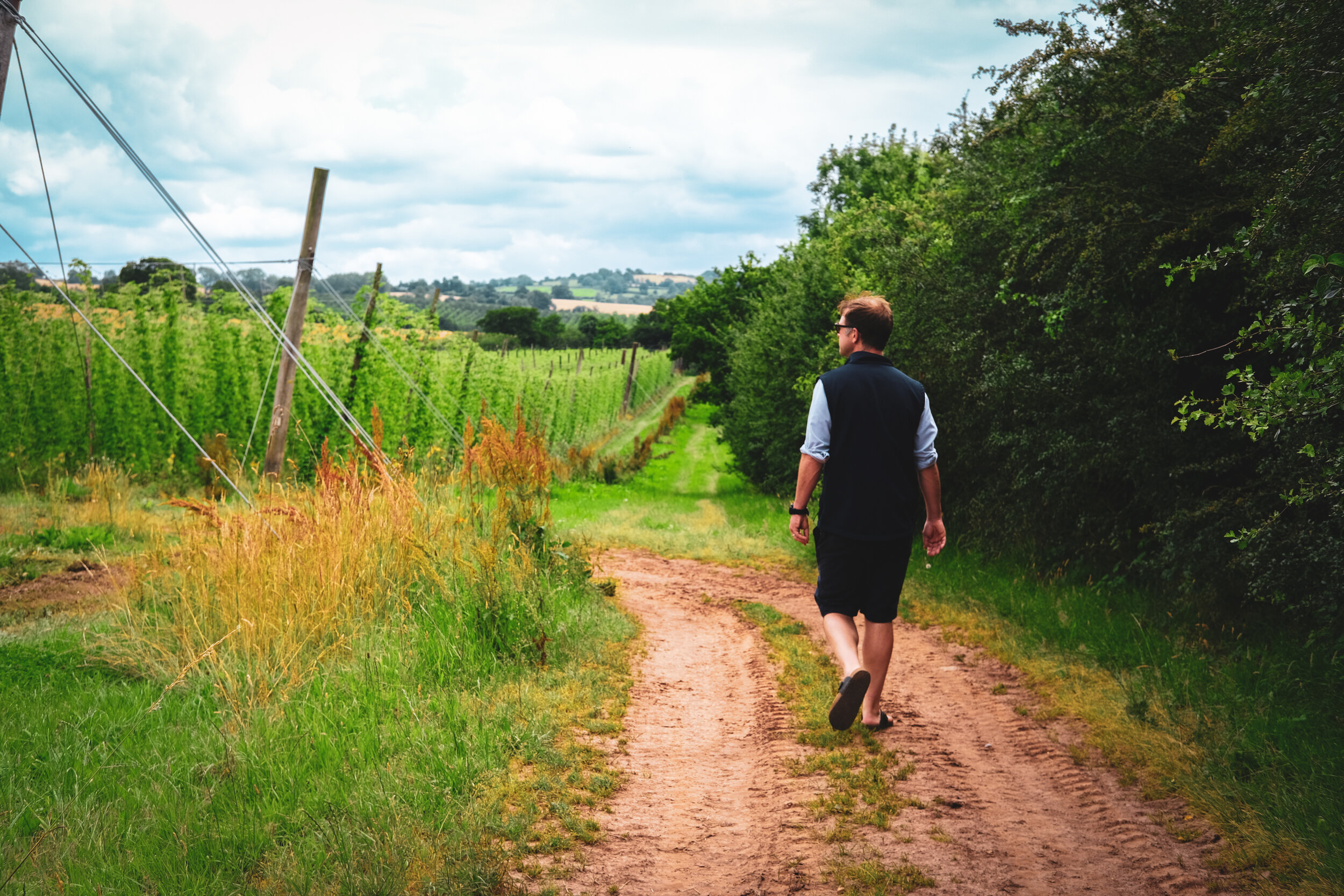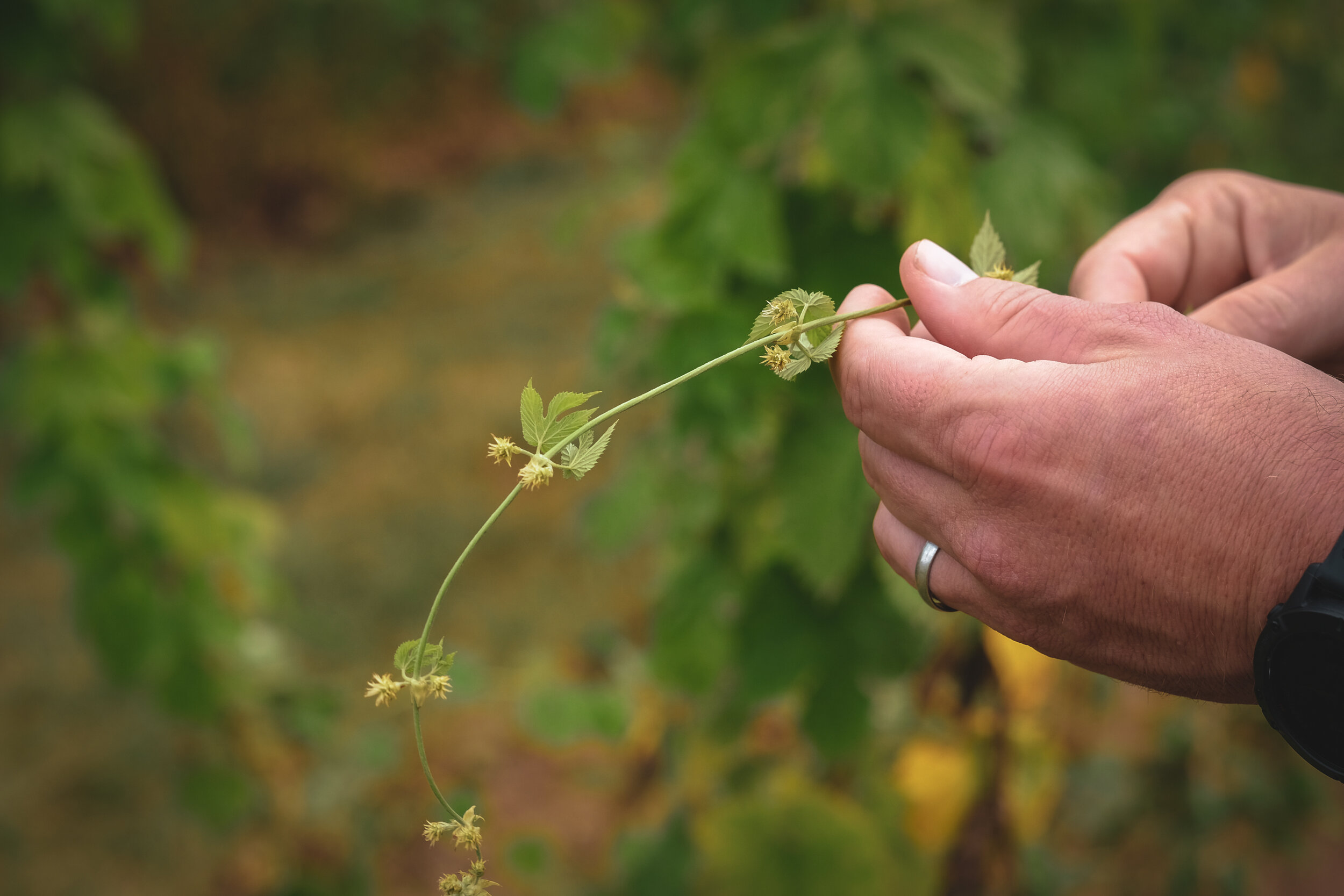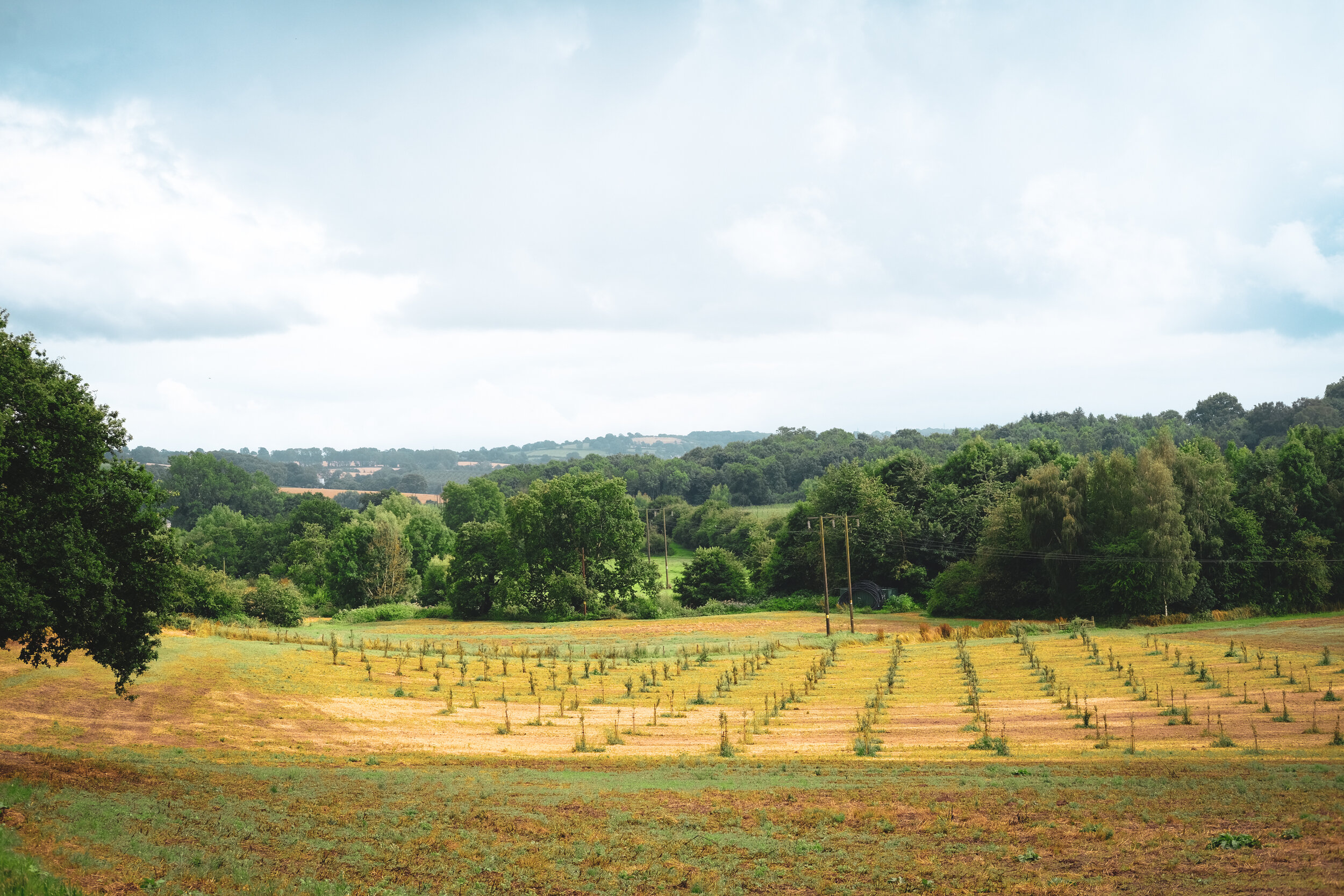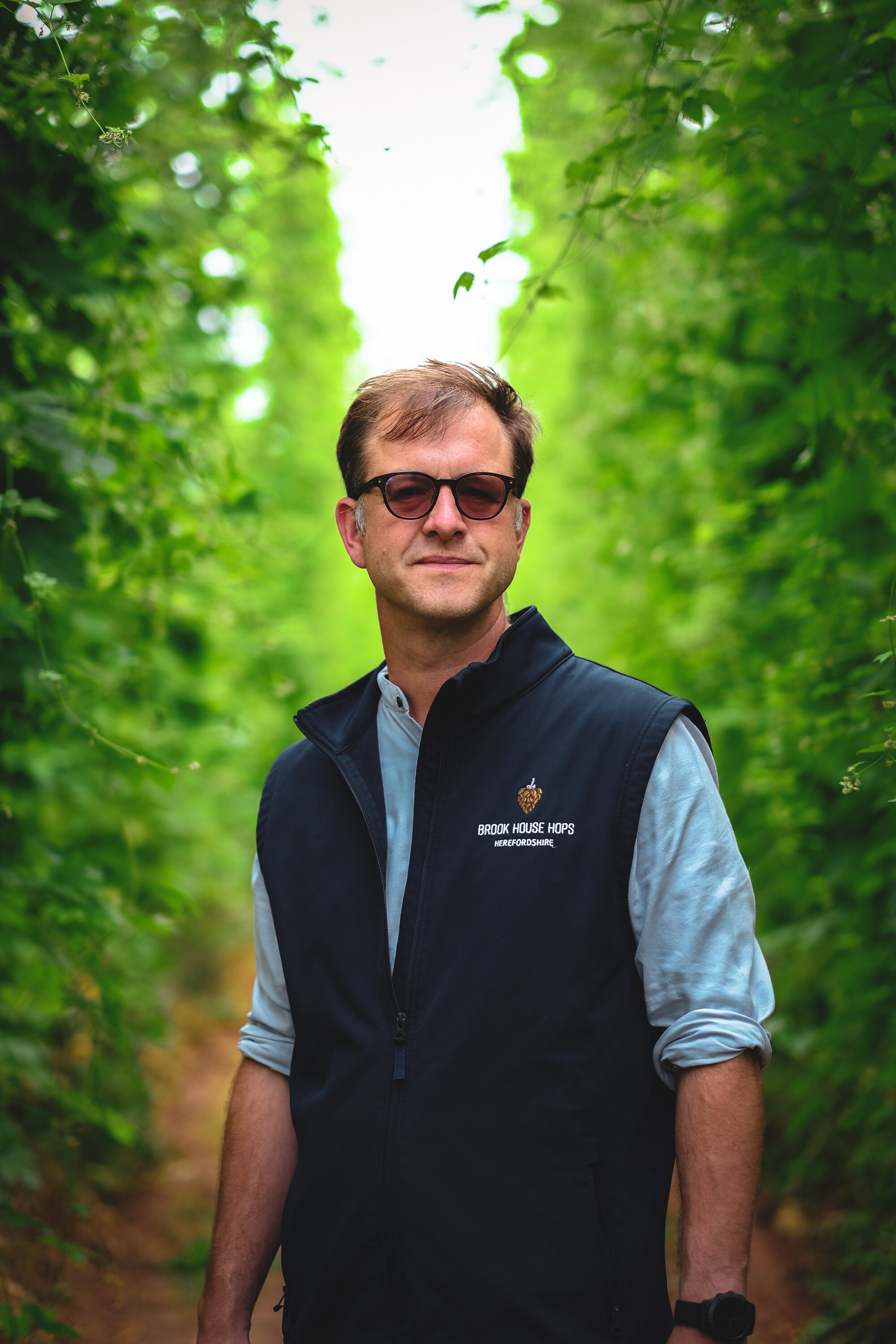Back To The Garden — How English Hop Growers Are Charting A New Path
On an unseasonably chilly June afternoon, Syndale Farm’s homely kitchen is the best place to be. Outside, the Kentish hop gardens are sodden after a morning of rain; inside, farmer John Clinch is making tea while his daughter Anna chats to Eddie Gadd, owner of Ramsgate’s Gadds’ Brewery, at the kitchen table. The trio has just finished a tour of the hop gardens, where the cones are yet to appear on bines winding their way up smartly arranged trellises.
Photography by Lily Waite
As the farm’s gaggle of skittish but amiable Springer Spaniels bustle here and there, Eddie steers the conversation towards this year’s harvest. He is looking for a new supplier after Covid-19 forced his previous hop-grower to dig up his gardens. “I need about 10 bales of Goldings a year,” he says. That suits John, with one condition: can they do it through English Hops, a co-operative merchant the Clinches belong to, he asks? Of course, says Eddie, who suggests a five-year agreement. Everyone is happy.
As brewer-farmer relationships go, this is close to perfect. For Eddie, whose passion for East Kent Goldings has grown year-on-year since Gadds’ opened in 2002, it’s an opportunity to see exactly where his hops grow and witness the care that goes into ensuring they’re of the highest quality; for the Clinches, it’s a long-term relationship with a well-respected local brewer which will showcase their hops at their best.
Eddie, whose brewery is around 25 miles away, is lucky; very few British brewers are able to have such a close relationship with the people who grow their hops. But maybe that’s changing. A new generation of hop growers, led by Brook House Hops, on the other side of England in Herefordshire, are now dealing directly with breweries, bypassing the hop merchants who have been a key element of hop-buying in this country for generations. It’s a shift that has the potential to revolutionise the perception of English hops, in this country and further afield.
***
Syndale Farm’s hop gardens, a 25-acre chunk of a 330-acre farm, are just about visible through the kitchen’s window, beyond a stable in which a large grey horse called Bailey calmly surveys various comings and goings. Two-thirds of the hops are Cobbs—the most common type of Golding, which is less a single variety than a family of hops—and the rest Challenger. The Clinches have been farming in East Kent for 300 years, and on this site, just off Watling Street outside Faversham, since 1919. John, now 61, took over from his father—also called John—in the late 1970s, and will hand over to Anna, 27, in the next few years.
The past is ever-present here. Close to the gardens are the corrugated-iron remnants of a row of hopper’s huts, where, Anna says, around 300 residents of Silvertown in East London used to stay every year during harvest. Cockney ashes have been scattered nearby. The farmhouse dates from the “16th or 17th” century although, John adds, it has been “messed about with”—added to—in the many years since.
““I knew I was in the home of English hops, and I thought I needed to get to know the local grower—and I did, and it has changed me.””
Crucially, the hop gardens sit on rich, fertile Brickearth soil, windblown loam and silt, deposited during the Ice Age. The Thames Estuary is just three miles away, and the hops, which grow on a gentle east-facing slope, are frequently buffeted by wind. This proximity to the sea is part of what makes East Kent Goldings what they are, although John regards it as a mixed blessing.
“They can end up a bit bashed and brown,” he says. “The German hops are always pristine! They must get no wind there.”
Eddie has bought his hops directly from local farms for years, although this is the first time he’s dealt with the Clinches. He learnt about them after being impressed when Jon Mills, who runs the Foundry brewpub in Canterbury, brought Clinch-grown hops to the annual Kent Green Hop brew at Gadds’ last year. Eddie used to use AC Hulme & Sons, much closer to his brewery, but the difficulties of selling hops post-Covid-19 led farmer Humphrey Hulme to grub up his 30 acres of gardens, to be replaced with more dependable plants—apples, perhaps, or potatoes.
This news is recalled with a grimace by Eddie, whose passion for East Kent Goldings is surpassed only by his love for his two children and matched, perhaps, by an attachment to Blackpool FC, his hometown football team. 50% of the hops used by Gadds are now East Kent Goldings.
“They’re gradually taking over the brewery,” he says, without any sense of regret. “I didn’t come to Kent for the hops, I came for the seaside. But I knew I was in the home of English hops, and I thought I needed to get to know the local grower—and I did, and it has changed me. This variety does my head in.”
East Kent Goldings need this sort of partisanship, despite their global reputation. Figures are hard to come by, but it seems likely that there are now fewer than 400 acres of hops being grown in East Kent, with most of the farms huddled around the market town of Faversham. Thanks to Covid-19, amongst other factors, sales to their best overseas market—the USA—fell steeply in 2020, too.
Eddie, short and wiry with a mop of dark-brown hair, arrived in Ramsgate in 2000, a product of the Firkin pub chain’s late-20th-century conveyor belt of brewers. An engineering student, he took a job as a bartender at the Flounder and Firkin on London’s Holloway Road in 1992, graduating to brewing in August 1993 at the Falcon and Firkin in Victoria Park. Later, he went abroad, to Holland (the Fiddler and Firkin in Den Haag), to Ukraine and to France, where he helped open a brewery and three pubs in Paris.
Soon after the Firkin chain stopped brewing in 1999—the result of a buyout by Punch Taverns—Eddie, now 53, ended up in Ramsgate, where he’s built a little empire, taking in the brewery, a stake in two local pubs, and a very successful bottling and packaging company, SEB, owned in partnership with Robert Wicks of Westerham Brewery and Duncan Sambrook of Sambrook’s Brewery.
Eddie has brought a package of his beers to Syndale Farm, to demonstrate the varied ways in which he uses East Kent Goldings. There’s Gadds No. 3, a classic English pale ale that bursts with zesty hop character, the more balanced No. 5 Best Bitter, Ship of Fools, a green-hop beer, High Tide—billed as a Kentish Tripel, without the distracting yeast character that defines its Belgian forebears—and his latest project, an East Kent Pilsner.
For a man who’s never short of a word or two, he finds it surprisingly difficult to express what he finds so beguiling about these hops.
“They’re unlike any other hop I know,” he says. “Most hops are pretty straightforward; you know what you’re getting. With East Kent Goldings there’s an astringency; you can use them in really small quantities but at higher levels, they become quite complex.”
***
They don’t grow East Kent Goldings at Brook House Farm in Bromyard, Herefordshire, for obvious reasons, but there’s plenty besides. Owner Will Kirby says that—across Brook House and nearby Newnham Farm, which they manage—they have 300 acres under trellis, although thanks to Covid-19 and the need to modernise some yards (what the Kentish call hop gardens, West Midlanders describe as hopyards), they’ve harvested between 150 and 160 acres of hops during August and September. They grow a huge range of varieties: Fuggle, Golding, Bramling Cross, Challenger, Chinook, and Target, among others.
Brook House Hops, which harvested its first modern-era crop in 2016, is perhaps the most intriguing hop producer in the UK. Kirby, 39, doesn’t come from a hop-growing background, which is surely why he sees the industry differently. He left a job in The City and a home in South London in 2015, moving with a young family to take on a distant cousin’s farm, which at that stage focused on cider apples and arable crops. Life changed when a neighbour invited him to a hop harvest.
“I just fell in love with the buzz, and the smell,” he says. “There's something about hops that really grabs you.”
He discovered that, in the early 20th century, Brook House Farm had been regarded as first-rate hop land. “Everyone said, ‘you’re crazy, everyone’s coming out of English hops,” he says. “But I’d been down to The Kernel [in Bermondsey], I knew craft beer was the thing. I went out to Yakima, I went to the Hallertau [in Bavaria]. I looked into it and the more I looked the more it seemed there was space for a new entrant.”
At first, though, he expected to do things the traditional way: sell his hops to merchants, who would then sell them to breweries. It was after the 2017 harvest that things changed: thanks to a variety of agronomic improvements, the farm produced double what it had contracts for—but when Will tried to sell the hops to merchants, he was rebuffed. So he bought equipment to nitrogen flush the hops, a small cold-store, and started going direct to breweries in the UK and USA.
“It was very interesting,” he says. “People were receptive—I think they wanted that farm-to-fork type connection.” (Hukins Hops, based in the Weald of Kent, has adopted a similar approach.)
There are three key elements to Brook House’s offer, he says. Picking hops at exactly the right time, modern processing equipment (“Yakima Chief has raised the bar on quality pretty relentlessly over the past three to five years,”) and ensuring that, once processed, hops are kept in a purpose-built cold store on the farm to preserve their delicate character. Brook House also supplements its offering with imported hops from the US, Europe and New Zealand.
““Brewers are not signing contracts for the 2021 harvest... In the medium-to-long term, I’m positive. In the short term, it’s going to be brutal.””
Brook House has sold English hops to around 600 UK breweries thus far, Will says, including some of the very best: DEYA Brewing Company in Cheltenham, for example, or Donzoko Brewing, once of Hartlepool but now based in Leith, Scotland. Reece Hugill, owner of Donzoko, uses Challenger and First Gold hops from Brook House for Garden Bier, an unfiltered session lager.
“I like English hops when they’re used in fairly large additions in the kettle,” Hugill says. “A hop like First Gold tastes like tangerine, with a really resinous floral flavour.”
He’s delighted to have a close relationship with the grower: “I love the idea of buying from the producer. The quality is so much better, and more of the profit is going back to them, too.”
Hugill also buys his German hops from a single supplier: the Locher family, who farm 19 hectares of hops in the Tettnang region, near the border with Liechtenstein and Switzerland.
“I was buying some hops from [Locher], and they told me about one called Petit Blanc, which his parents had brought back from France years ago from the garden of an old hop grower,” he says. “They planted a couple of acres, and it’s amazing. It’s almost like a New World hop. They don’t have much but he sold me 15 kilos. That’s why it’s good to have these relationships with the growers—I would never have got that from a merchant.”
For Kirby, optimism about the future of English hop-growing and the model he is pioneering is tempered by what happened in 2020. “We’re knocking on a lot of doors trying to get brewers to use English hops, but there’s a lot of reputational hangover,” he says. “And because lockdown affected pubs, and cask ale especially, there are huge amounts of hops sitting in warehouses.
“Brewers are not signing contracts for the 2021 harvest, and working through that backlog is going to be really difficult. In the medium-to-long term, I’m positive. In the short term, it’s going to be brutal.”
***
Back at Syndale Farm, a new crop is growing in the field above the hop gardens: grapes, specifically Pinot Noir and Chardonnay, under contract with wine-makers Chapel Down. If hops are struggling, then grapes have never been more popular in the Garden of England. There’s vastly more acreage of grapes than hops in Kent now, and the disparity is only growing. Once, of course, English wine was a bit of a joke; now, with quality rising year on year, it’s booming. There’s surely a lesson there.
Eddie, meanwhile, has fresh ideas of his own. He’s recently unveiled his East Kent Pilsner, which—like Donzoko’s Garden Bier—uses English hops to impressive effect in a lager. “It’s got a sweetness that you don’t get normally in a Pilsner, and that sweetness comes from the Goldings,” he says. “A good Golding is sweet, and it’s almost like a self-balancing ingredient—it’s sweet and bitter at the same time. So the beer’s got that sweetness, that bitterness, and a touch of astringency. I’m happy with it.”
Eddie’s right: the beer is delicious, with the sort of elegant, more-ish balance you’d expect in a good-quality German Pils. It’s the perfect example of how traditional ingredients can shine when new ideas are embraced.
***
Editors note: Brook House Hops went into administration and subsequently ceased trading in April 2023.



